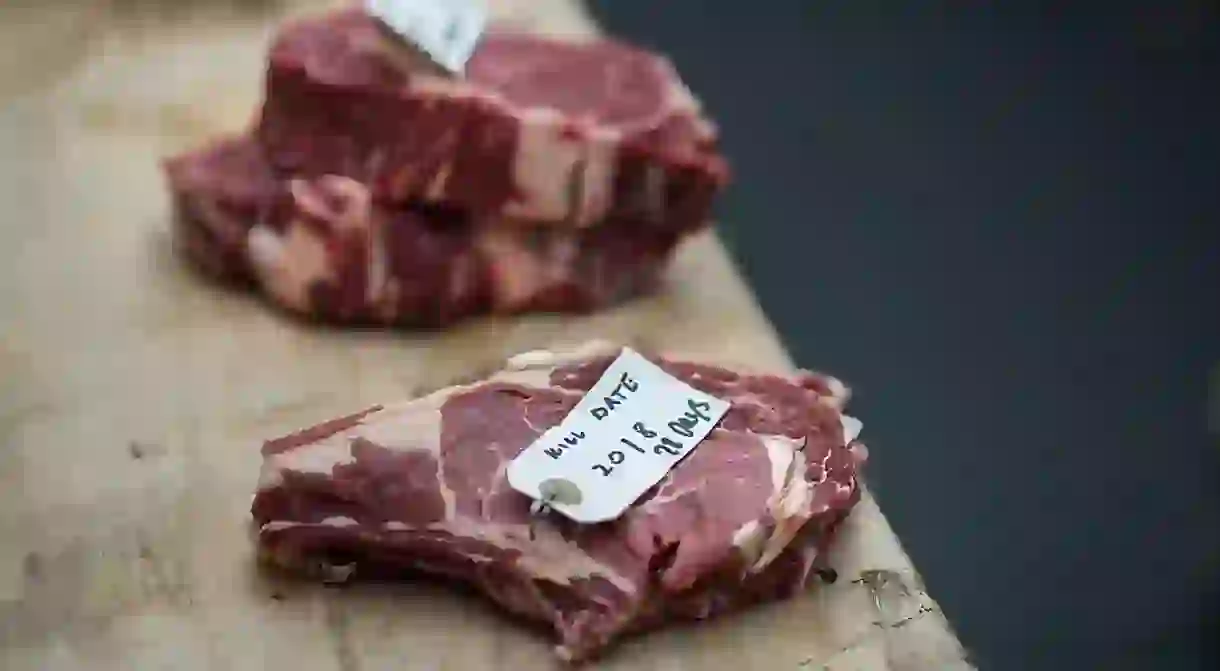A Butcher’s Guide to Eating Meat

With more people than ever cutting meat out of their diet, we asked three butchers for their tips on being better meat-eaters.
So-called ‘flexitarianism’ – the practice of eating less meat without going entirely vegetarian – is the dietary choice-du-jour, and veganism is at a higher rate than ever. Being a carnivore has never seemed less fashionable, but the new trend for veg-based eating has little to do with meat and more to do with people making a conscious effort to understand what they’re eating, where it comes from, and what impact it has on the world – and meat-eaters are no exception.
We spoke to three London butchers about being a better meat-eater.
Tim Wilson – The Ginger Pig
‘Eating high quality, high welfare cuts of meat less often, as opposed to eating low quality, factory-farmed meat every day should be encouraged.
‘Ginger Pig’s focus has always been on sustainability – we farm over 3,000 acres of our own pasture and North Yorkshire moorland, and work with a small network of like-minded farmers to supply our London butchers’ shops with high-quality meat.
‘As a head-to-toe butchers, we use all of the animal, with the parts that would otherwise be wasted being used in fantastic cooked deli products and stock. If you’ve got leftover bones and bits from a piece of meat, making fresh stock is a great way to put them to use.’

Richard Turner – Turner & George, Hawksmoor, Meatopia
‘I firmly believe that flexitarianism is the future. I eat meat almost daily, as it is my job, but given the option, I mitigate my meat consumption by eating as many vegetables as possible.
‘Meatopia is a carnivorous carnival of ethically and sustainably reared meat, judiciously cooked by some of the foremost leaders in this field. Our ethos: eat less, but better quality meat, ask questions, then ask more questions. By choosing better meat we’re encouraging ethical farming, and farmers can only rear to market demand. The same goes for dairy and eggs, of course.
‘If good quality, well-raised meat becomes more and more expensive we will all need to choose between flexitarianism or eating cheap, and in many cases, cruelly farmed meat. I know which I’d choose for my family.’

Paul Grout – Meat N16
‘In the 80s and 90s, mad cow disease prompted people to think about where their food was coming from. This improved British farming no end. The recent horsemeat scandals have had a similar effect, but to me, the real scandal was that the retailers couldn’t tell us where their meat was sourced. There’s a better understanding now about what it means to rear animals naturally and talking about the farmers and producers is a big part of that.
‘Our butcher’s shop is in an affluent area, but it’s aspirational – people spend so much on rent that they don’t always have huge amounts of disposable income. What they care about is getting the most out of a good piece of meat. Our customers are really smart about getting three or four meals out of one chicken from us.
“If you know how to cook, you can make beautiful things with vegetables, meat, fish – all of it.”

Eat less meat– the recommendation rings out loud and clear from these butchers. With the future of our food industry at stake (or, should we say, steak?), cutting out the odd chicken nugget seems like a small price to pay.













